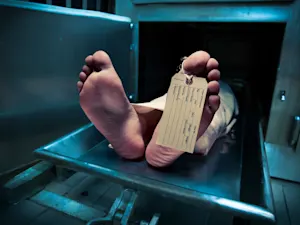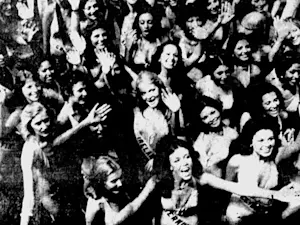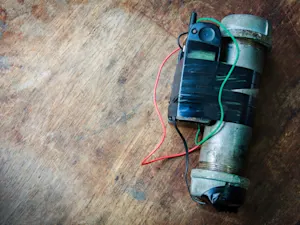
'Kennedy Must Fall': Chilling Note Surfaces
Sen. Robert F. Kennedy in 1966. Public domain.
On June 5, 1968, just moments after celebrating his win in the California Democratic primary, Senator Robert F. Kennedy was gunned down in a crowded kitchen pantry at the Ambassador Hotel in Los Angeles.
His death — tragic, public, and politically seismic — stunned a nation still grieving the loss of his brother, President John F. Kennedy, and civil rights leader Martin Luther King Jr., who had been killed just two months prior.
Now, more than 50 years later, the CIA has released nearly 1,500 pages of documents related to the assassination.
But instead of confirming long-held conspiracy theories or turning the case on its head, the files may raise as many questions as they answer.
What the Documents Reveal
The newly released material includes 54 previously classified documents, memos, foreign cables, and psychological assessments.
Among the most arresting items are handwritten notes from Sirhan Sirhan, the Palestinian-born Jordanian citizen convicted of RFK's murder. One note, reported by the New York Post, chillingly reads, "Kennedy must fall Kennedy must fall. Please pay to the order of Sirhan Sirhan" — a fragment that investigators believe predates Sirhan's other entries from May 1968.
Other writings framed Kennedy's death as a political act. One, reported by the New York Post, declared, "We believe that Robert F. Kennedy must be sacrificed for the cause of the poor exploited people," referring to Kennedy's pro-Israel stance during the 1967 Six-Day War — a key grievance for Sirhan, who said in a 1989 interview that Kennedy's support for Israel felt like a betrayal.
Despite these direct statements, Sirhan claimed he had no memory of the actual shooting. A psychological evaluation conducted just days after the assassination described him as having "high intellectual potential" but impulsive tendencies, more in line with lone attackers like those who killed Presidents Garfield and McKinley, according to the New York Post.
One of the most extensive files in the release, an 814-page dispatch log, cataloged how CIA stations around the world tracked media narratives and foreign reactions. A report from Sri Lanka noted efforts to influence public opinion by highlighting global violence and criticizing China's condemnation of America.
A Voluntary Informant?
Another striking detail in the release has nothing to do with Sirhan Sirhan — and everything to do with RFK himself. As a 29-year-old Senate staffer, Kennedy traveled to the Soviet Union in 1955 with Supreme Court Justice William O. Douglas. According to declassified CIA files, he met with the agency afterward to share detailed insights on Soviet life, including wage scales and work environments in factories he visited.
The CIA documented these meetings in a 129-page diary. Kennedy also handed over more than 1,000 photographs and film reels from the trip, which the agency praised as evidence of the "depth of his patriotism and commitment to serving his country" during the Cold War, according to the New York Post.
Conspiracy or Lone Actor?
The biggest question — whether Sirhan acted alone — remains unanswered for many. RFK's son, Health and Human Services Secretary Robert F. Kennedy Jr., has repeatedly voiced skepticism that Sirhan fired the fatal shot. In 2018, he visited Sirhan in prison, later telling The Washington Post that he was "disturbed that the wrong person might have been convicted of killing my father," according to the New York Post.
In a 2021 op-ed, Kennedy Jr. alleged that security guard Thane Eugene Cesar had been responsible for his father's death — a claim never proven in court. Cesar died in the Philippines in 2019, maintaining his innocence.
But the CIA's own conclusion stands firm that there is no evidence linking Sirhan to any broader terrorist group or foreign operation. An internal memo dated June 6, 1968, confirmed that an immediate file search turned up nothing to connect Sirhan to any such network.
The Politics of Transparency
The June 2025 document release followed a directive from former President Donald Trump, who had ordered declassification of files related to the assassinations of RFK, JFK, and Martin Luther King Jr. The latest release brings the total to more than 70,000 pages on RFK's killing alone.
CIA Director John Ratcliffe called the release a "public interest" effort, praising the use of artificial intelligence to uncover hidden files that were not previously reviewed, according to the Associated Press.
RFK Jr. welcomed the transparency, calling it a vital step toward rebuilding trust in American institutions — though he notably did not address the contents of the new documents directly.
Still, while these documents add depth to the existing historical record, they stop short of a bombshell. The newly revealed files reinforce the idea that Sirhan acted alone — yet they leave room for those who believe otherwise to continue asking questions.
References: CIA releases more than 1,000 pages on RFK assassination — including chilling statement: "Kennedy must fall" | Newly declassified files show RFK met with CIA after trip to Soviet Union | CIA releases 54 declassified documents related to RFK assassination | Robert F. Kennedy met with the CIA after a trip to the Soviet Union, newly declassified files show























